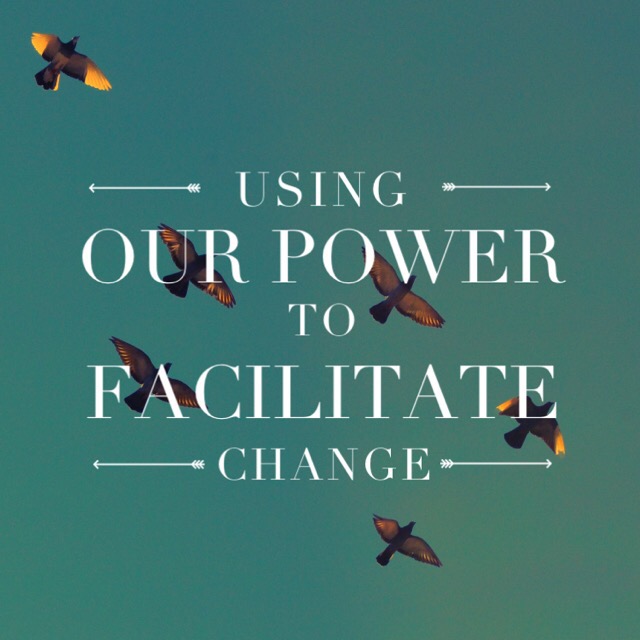
Be Yourself: Don’t Become Emotionally Fused
When I ask couples what brings them to therapy, a common answer is “communication.” Often couples’ struggles have to do with handling any sort of disagreement, feeling uncomfortable during conflict, and not being able to tolerate that their partner has a difference of opinion. The subtext of “we don’t communicate” can be “my partner isn’t agreeing with me and when this happens I feel criticized and rejected.” These couples have less intimacy in their relationship because there is less individuality between them. If a couple is operating out of a need for approval, fear of failure, need for validation, or fear of rejection, it is difficult to have discussions or even arguments as two whole, unique individuals. Think about it. It’s difficult to maintain a strong, solid opinion if you are feeling pressured to agree, perform, or conform because of fear of your partner’s reaction or rejection. This describes the couple that is “emotionally fused.”
What is Fusion?
Fusion is the process of combining two or more distinct entities into a new whole. Fusion can be exciting. Over the years, man has created types of fusion for the betterment of society. Take science, for example. Fusion of distinct entities occurs in physics, chemistry, anatomy, and medicine. Fusion types that might be familiar to us are nuclear fusion, heat fusion (welding), spinal fusion, and tooth fusion. Musical fusion entails combining two completely different musical genres such as jazz and classical. This takes the listener on a musical roller coaster that is exciting and fun. Fusion cuisine combines global culinary traditions. The list could go on and on…..
What is Emotional Fusion?
If the definition of fusion is combining two or more distinct entities into a new whole, then basically emotional fusion is combining two or more people into a new whole, or a new entity. Emotional fusion is emotional togetherness without the freedom of individuality. It is an unseen, unhealthy, emotional attachment where people lose their sense of self and the unique identity that God has created for them. Emotionally fused people are needy. They look to others to mirror to them their sense of identity. Because their identity is defined by others, they require constant validation, becoming what they think others want them to be. When that occurs, relationships are not as fulfilling as they could be and there can be a sense of emptiness and feelings of “I’m not enough,” or “what’s wrong with me.” Emotional fusion can also lead to feelings of detachment and even rebellion in families as those who are hurting try to gain a sense of self.
How Does Emotional Fusion Happen?
So how do we become emotionally fused in relationships? Generally speaking, it’s from developing core beliefs that we have about ourselves, others, and the world based on our childhood experiences. If we grew up in a home and/or environment that interfered with our perceived ability to separate, to survive, to function independently and to perform successfully outside of others, we may have grown up learning to be emotionally fused to others. For example, if, during our early years, caregivers were undermining our confidence, overprotective, or failed to foster a belief that we could perform on our own outside of the family, then we may have learned to become emotionally fused individuals. If we grew up in an environment where we changed our opinions to please other people, where we weren’t given the freedom to think independently, where there was frequent criticism, perhaps coupled with an appearance of perfectionism, then we may have learned to become emotionally fused individuals. Emotional fusion, therefore, is a bi-product of unhealthy attachment. If we were not taught appropriate independence and encouraged to be independent thinkers, we may become overly dependent as adults. If this happens, we might rely on others to reflect and mirror to us what we need to see and hear in order to maintain our sense of self.
What Can I Do if I’m an Emotionally Fused Person?
In psychology, having the ability to develop and hold on to your own identity is called “differentiation.” As Christians, this differentiation is an understanding that the source of our identity is in Christ, and not in other people. Our identity is what defines us. Our identity shapes the core beliefs that we have about ourselves, others, and the world. Every individual has a longing to create a strong identity to give significance, purpose, meaning, and direction in life. As humans, we live out our identity because we live out our core beliefs. Differentiating through our identity in Christ is the realization that we were created uniquely in the image of God. This molds us to have a strong, solid sense of self. We are able to maintain our own special uniqueness even as we draw closer to another in an intimate relationship. Highly differentiated people take ownership for their own thoughts, feelings, and behaviors. They do not make others responsible. When we have a strong sense of self, we are better able to be vulnerable in relationships, to handle intimacy and not ‘run’ in fear. In addition, we’re able to soothe ourselves, be calm when our loved ones are away from us, if we are in conflict, or if we are not in a relationship because our strength and identity does not come from others. Without strong, separate “I’s” there can be no emotionally satisfying “we.” God made us as whole, complete people created in His image. There is a common phrase that says “I’ve found my other half.” Looking for our “other half” implies that we are a half a person. A strong well developed identity in Christ, therefore, is the key to secure relationships. This is true with marriage, with family, and with friendships. Hold on to the qualities that make you, you.
You are Amazing, Wonderful, and Uniquely Made,

Kathryn Manley, MS, LPC, CST
Individual, Family, and Marriage Counseling
Certified Sex Therapist (AASECT)
Differentiation of Self Inventory:
Questions concerning your thoughts and feelings about yourself and others.





